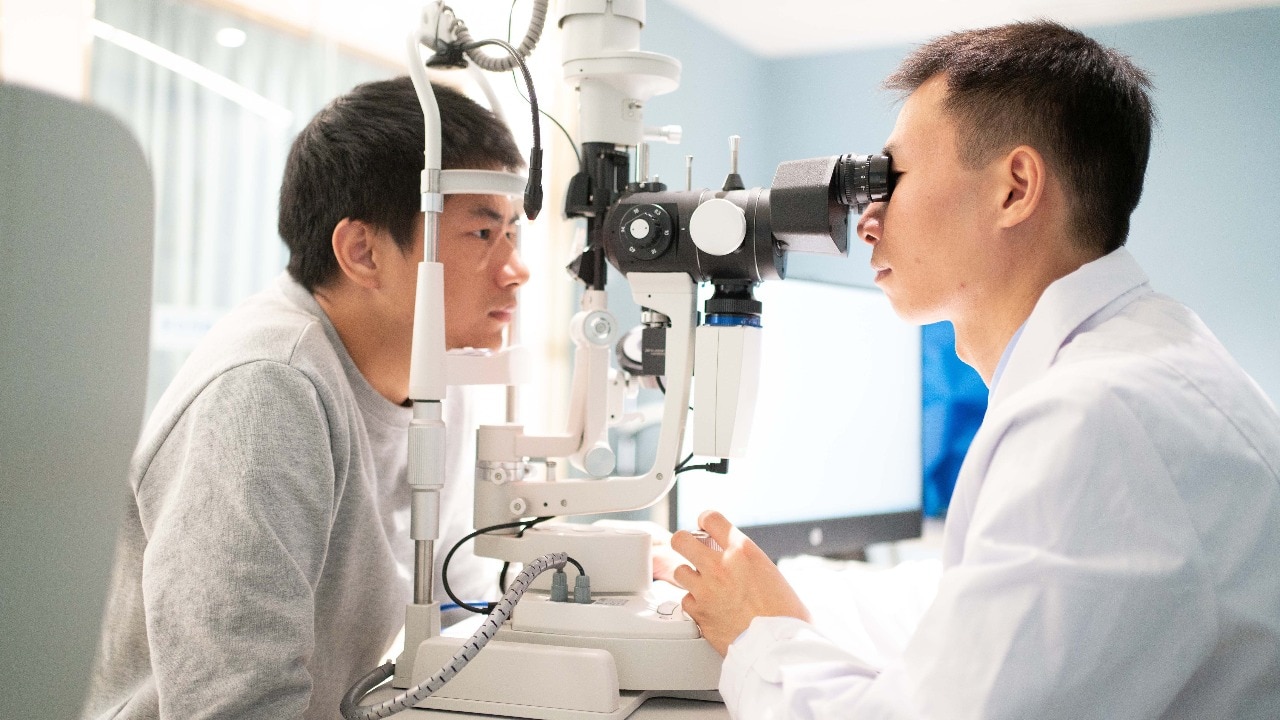How Vision Foretells Dementia Up to 12 Years Before Diagnosis

A recent study indicates that alterations in eyesight might serve as an initial indicator of dementia, potentially surfacing up to 12 years prior to diagnosis. Experts suggest that basic ocular examinations could aid in identifying the condition even before cognitive issues arise.
Dementia refers to various neurological conditions that cause a deterioration in an individual’s memory, intellectual functions, problem-solving abilities, logical reasoning, among others as they grow older. This condition progressively intensifies, impacting behavior adversely. Although there currently isn’t a treatment to eliminate dementia completely, certain medications can assist in managing its manifestations.
The study, published in peer-reviewed journal Scientific Reports , carried out in Norfolk, England, tracked 8,623 healthy participants over multiple years.
At the conclusion of the research, 537 individuals had been diagnosed with dementia. The findings revealed that participants who went on to develop dementia initially showed poor performance on a visual sensitivity test administered at the beginning of the study.
The examination tasked participants with pressing a button whenever they detected a triangle appearing among a group of moving dots. Individuals who later developed dementia were notably slower in identifying the form.
HOW VISION AND DEMENTIA ARE LINKED
The researchers believe that Alzheimer's disease, the most common form of dementia Starts with the accumulation of poisonous amyloid plaques or detrimental proteins in the brain. Initially, these plaques can impact areas associated with sight prior to harming parts linked to memory. This might account for visual difficulties manifesting well ahead of memory-related challenges.
Other vision-related problems linked to Alzheimer's include difficulty seeing object outlines (contrast sensitivity) and trouble distinguishing between certain colours, particularly in the blue-green spectrum. Many people may not notice these gradual changes.
Another early sign of Alzheimer's is difficulty controlling eye movements. People with dementia may struggle to ignore distractions and may have inefficient eye movement patterns when looking at new faces.
In healthy individuals, the eyes naturally scan from the eyes to the nose to the mouth when meeting someone new. However, people with dementia may not follow this pattern, making it harder to recognise faces later.
Certain physicians can identify dementia in patients just by watching their eye movements. Individuals suffering from dementia might seem disoriented as they fail to thoroughly examine their surroundings, which makes it challenging for them to absorb new details.
CAN EYEMOVES ENHANCE YOUR MEMORY?
Scientists are investigating if intentional eye movements might enhance memory retention.
Certain research indicates that viewing TV and reading, which involve frequent eye movements It could potentially be associated with enhanced memory function and a reduced likelihood of developing dementia. Additionally, rapid left-to-right eye movements have been shown to boost memory recall; however, this appears to offer greater benefits for right-handed individuals.
Even with these discoveries, incorporating eye movements as a diagnostic method for dementia has not become widespread practice.
The cost of eye-tracking technology is high, and interpreting the data necessitates specialized training. Therefore, until we see more accessible and easier-to-use versions come onto the market, these examinations for detecting early-stage Alzheimer’s will probably stay confined primarily to research environments.
Comments
Post a Comment